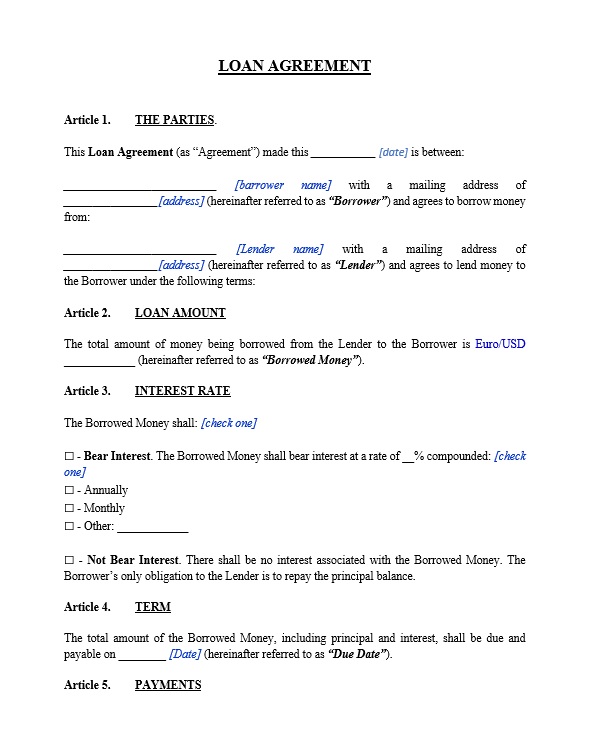Estimated reading time: 2 minutes

A Loan Agreement governs the relationship between lender and borrower. It clearly specifies the principal amount, repayment plan, and interest obligations. This clarity helps prevent disputes and protects both parties by ensuring transparency and enforceability. For borrowers, the Loan Contract provides access to credit; for lenders, it secures repayment rights.
Core Terms of a Loan Contract
Main elements of the Agreement include the loan amount, repayment schedule, interest rate, and maturity date. Additional clauses may cover prepayment, late payment penalties, and security requirements such as collateral. A well-drafted Loan Contract establishes order, prevents misunderstandings, and provides a framework that ensures repayment according to agreed terms.
Enforcement and Default Provisions
Every Loan Agreement defines what constitutes default. Common triggers include failure to pay installments, insolvency, or breach of other obligations. Once default occurs, the lender may accelerate repayment, enforce collateral, or pursue court action. These provisions safeguard the lender while also making the borrower aware of the serious consequences of non-compliance.
Governing Law and Professional Advice
Each Agreement is subject to governing law, which determines enforceability and resolution of disputes. Parties are encouraged to obtain independent legal and financial advice before signing, as obligations under the Loan Contract are strict and long-term. With balanced drafting, the Agreement creates fairness, protects capital, and facilitates smooth financial transactions.
Check out more pages of our website for related content:
Access the Full Contract Directory Index
You can browse the complete alphabetical list of all commercial, financial, and project-based contract templates by visiting our A–Z Contract Index.
References
- International Monetary Fund (IMF) – Understanding Sovereign and Commercial Loan Structures
- U.S. Securities and Exchange Commission (SEC) – Loan Agreements and Key Contractual Terms Explained
- World Economic Forum (WEF) – Global Trends Affecting Lending, Credit Conditions, and Financial Agreements
has been added to your cart!
have been added to your cart!



